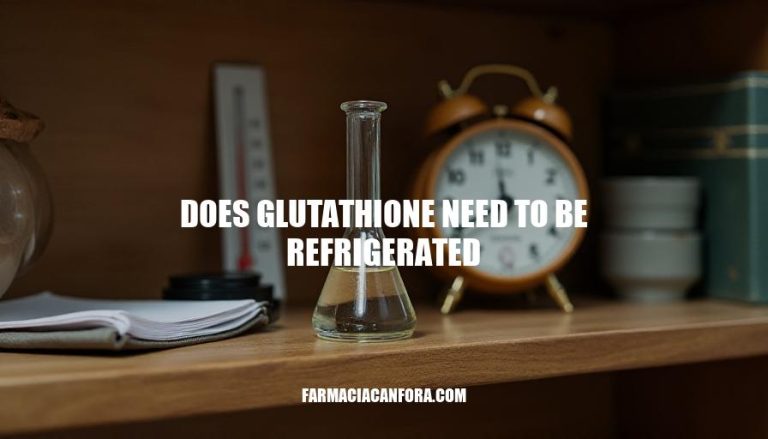


Glutathione is a powerful antioxidant made from three amino acids: cysteine, glutamate, and glycine. It plays a crucial role in detoxifying the body, supporting the immune system, and protecting cells from damage.
The question of whether glutathione needs to be refrigerated is important because proper storage can affect its potency and effectiveness. For consumers and healthcare providers, ensuring that glutathione supplements maintain their efficacy is essential for achieving the desired health benefits.
Refrigeration is crucial for glutathione because it helps maintain the supplement’s potency and effectiveness by slowing down the oxidation process. When glutathione is exposed to air and light, it can start to degrade and lose its effectiveness. By storing it in the refrigerator, you can extend its shelf life and ensure it remains potent. This is especially important because glutathione is sensitive to high temperatures, which can accelerate its degradation. Therefore, keeping it cool helps preserve its antioxidant properties and overall efficacy.
When glutathione is stored at room temperature, it can degrade and lose its effectiveness. Exposure to heat can cause it to break down, reducing its antioxidant properties. This degradation process can happen relatively quickly, making the glutathione less potent and less effective in performing its cellular repair functions. For optimal preservation, it is recommended to store glutathione at cooler temperatures, typically between 2°C and 8°C (36°F and 46°F).
Storage Recommendations for Glutathione:
Refrigeration:
Exceptions:
Additional Tips:
Following these guidelines will help ensure your glutathione remains effective and safe to use.
Glutathione is a sensitive supplement that requires proper storage to maintain its potency and effectiveness.
Refrigeration is crucial, as it slows down oxidation and degradation caused by heat, light, and moisture.
Store glutathione in an airtight container at 2-8°C (36-46°F) or follow the manufacturer’s guidelines for liposomal formulations.
Avoid storing it near direct sunlight, heat sources, or high temperatures to prevent degradation.
Regularly check for signs of spoilage or changes in appearance and smell.